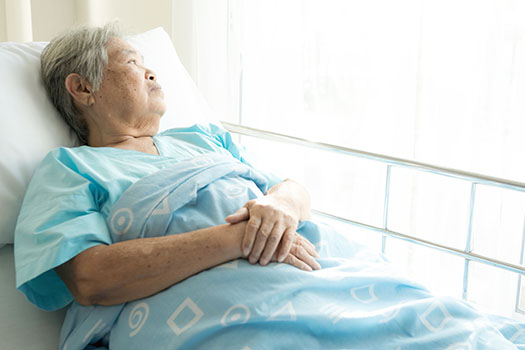After your senior loved one has been discharged from the hospital, the last thing you want is to see him or her have to return for additional inpatient care. However, there are sometimes unexpected issues with recovery or entirely new problems that need to be addressed in a hospital. While it’s not always possible to prevent readmissions, it’s still important to understand why going back to the hospital can be bad for an older adult.
1. Increased Infection Risk
Because of increased exposure to airborne viruses from being around different people and the frequent need to use catheters, seniors returning to the hospital frequently have a greater risk of developing an infection. According to Medscape, the most common hospital-acquired infections include:
• Bloodstream infections
• Pneumonia and similar respiratory infections
• Urinary tract infections
• Surgical site infections
A professional in-home caregiver can closely monitor your loved one for infections. Fair Oaks senior care experts are available to provide high-quality care to seniors on an as-needed basis. From assistance with mobility and exercise to providing transportation to the doctor’s office and social events, there are a variety of ways professional caregivers can help your aging loved one continue to live independently.
2. Medication Issues
According to an AARP survey of 1,000 adults aged 50 and older, 75 percent of people in this age group take at least one prescription medication on a regular basis. When older adults are released from the hospital, they may need to take additional medications to prevent infections or manage their discomfort, which means there’s an increased risk of unintentional drug interactions. This risk can be minimized with each hospital visit by:
• Disclosing all medications your loved one is taking—including over-the-counter drugs and supplements—each time he or she is admitted to the hospital
Knowing potential medication side effects to look for
• Double-checking dosage instructions
3. Increased Stress
According to a Harvard Medical School article on seniors and stress, added stress and anxiety can contribute to higher blood pressure and an increased heart rate in older adults. For some seniors, having to go back to the hospital results in increased stress and anxiety, which means their overall health may worsen.
A professional caregiver can be a wonderful source of support for a senior who’s recovering after being hospitalized. When searching for reliable home care agencies, families want to know their senior loved one will be well taken care of. At Home Care Assistance, our expertly trained caregivers are available around the clock to assist with tasks around the house, provide transportation to medical appointments and social events, and much more.
4. Added Confusion
If your loved one has dementia or another type of cognitive impairment, repeated visits to the hospital may increase confusion because a stay in the hospital means being in an unfamiliar setting and following a routine that’s different from what he or she is used to. Your loved one may react by becoming increasingly confused and agitated.
5. Reduced Independence
Understandably, most seniors value their independence and prefer to remain as independent as possible for as long as possible. But it’s not easy to achieve this goal with repeated hospital readmissions. Your loved one may reach a point where he or she is limited with regard to how much he or she can do without supervision or assistance.
One way to handle this problem is to opt for in-home care when your loved one gets out of the hospital. This type of care can be provided only when needed and in a way that allows your loved one to remain independent.
6. Social Withdrawal
Seniors regularly readmitted to the hospital may become depressed or increasingly fearful of doing anything that may result in another visit to the hospital, and these feelings could contribute to social withdrawal. This increased isolation could worsen or hasten physical and mental health conditions. You may be able to minimize this potential problem by:
• Suggesting appropriate activity modifications
• Talking to your loved one’s doctor about mood changes or signs of depression
• Following discharge instructions carefully to reduce readmissions
Whether you need respite from your caregiving duties or your aging loved one needs live-in care, Fair Oaks, CA, Home Care Assistance can meet your family’s care needs. Our dedicated caregivers are available around the clock to provide transportation to doctor’s appointments, ensure seniors take their prescribed medications, and help with a variety of tasks in and outside the home. Trust Home Care Assistance to provide high-quality compassionate, professional care for your loved one. If your loved one needs help with the challenges of aging, call one of our compassionate Care Managers today at (916) 485-4663.
